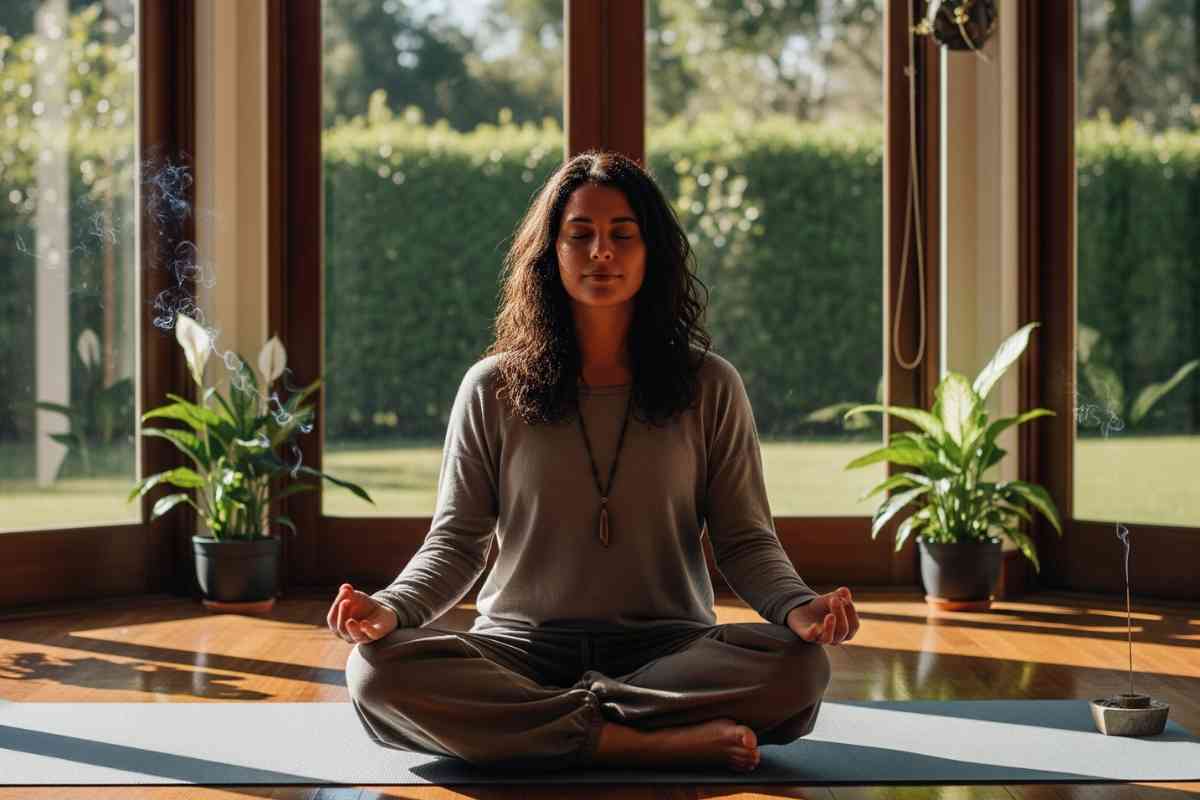Easy Slow Living Tips to Reduce Stress

Life feels too fast sometimes, right? You're not alone. Slow living helps you press pause, breathe, and enjoy what really matters.
This guide gives you easy, doable tips to reduce stress without changing your whole life.
Ready to feel calmer, clearer, and more present every day? Let’s slow things down, one step at a time.
Key Takeaways
-
Start Your Day with Stillness: A quiet morning sets the tone for a calmer, more focused day.
-
Do One Thing at a Time: Single-tasking reduces stress and helps your brain work better.
-
Take Intentional Breaks: Short pauses boost energy, clarity, and productivity.
-
Unplug Regularly: Disconnecting from screens creates space for deeper presence and connection.
-
Protect Your Peace: Saying no helps you prioritize what really matters without guilt.
What is Slow Living and Why Does It Matter Today
Slow living is a lifestyle philosophy that encourages a more mindful, intentional approach to daily life by prioritizing quality over speed.
Rooted in the slow food movement of the 1980s, it emphasizes simplicity, presence, and a deeper connection to one's values and environment.
As modern life grows increasingly fast-paced, slow living is gaining traction for its potential to reduce stress, improve well-being, and foster greater life satisfaction.
Simple Practical Tips to Start Slowing Down Today
Begin Your Morning with Stillness
Starting your day with quiet moments,like meditation or deep breathing,can lower stress, improve focus, and boost emotional well-being.
According to Massachusetts General Hospital, avoiding early digital distractions supports better mental health. Research shows morning stillness reduces cortisol, sharpens thinking, and enhances mood.
Compared to screen time, it creates a calmer, more productive mindset. Just a few mindful minutes each morning can lead to lasting benefits for your body, brain, and overall sense of balance.

Focus on One Thing at a Time
According to a study, multitasking can cut productivity by up to 40% and increase errors.
Harvard Health also notes that switching tasks strains the brain, especially for older adults, causing stress and memory lapses.
Focusing on one task at a time,called single-tasking, improves clarity, reduces stress, and helps you finish faster.
Try working in short intervals with breaks, and block distractions. Slowing down isn’t lazy, it’s smarter and healthier for your brain.
Schedule Intentional Breaks
According to Plos.One , short micro-breaks during work reduce fatigue, boost energy, and slightly improve performance, especially for less demanding tasks.
Annals of Tourism Research also found that even brief breaks help restore focus and well-being, sometimes more effectively than long vacations.
These intentional pauses, whether just a few minutes or a longer lunch, help prevent burnout and support mental clarity.
Backed by research, taking breaks isn’t a waste of time, it’s a proven way to stay productive and feel better.

Disconnect to Reconnect
Can you go a day without your phone or social media? It might feel uncomfortable at first, but stepping away from screens gives your mind space.
You may notice the sky, the breeze, or someone’s expression. Without digital noise, conversations deepen and time slows down.
Try tech-free zones at home, like the dining table or bedroom. What do you notice when you unplug? Sit with it. Stillness isn't empty, it's full of life.
Practice Mindful Breathing
Mindful breathing is simple: sit comfortably, breathe in slowly through your nose and feel your belly rise.
Breathe out through your nose and feel it fall. Try this for two minutes. Morning and evening are good times, but any time you feel scattered works.
If your mind wanders, return to your breath. Don’t worry about doing it perfectly, the goal is awareness. With practice, this calm can become part of your routine.
Say No Without Guilt
Saying no isn’t rejection, it’s prioritization. Overcommitting causes stress and exhaustion.
Feeling drained or rushed often signals doing too much. Saying no may feel uncomfortable, but it’s necessary for self-care.
Use clear responses like, “I’d love to help, but I can’t right now.” If guilt arises, pause and reflect, don’t let it drive your choices. With practice, saying no protects your time and energy.
Reflect Daily to Stay Grounded
At the end of the day, ask yourself: Did I pause and truly breathe? When did I feel most at peace?
Was I intentional or just on autopilot? What am I grateful for? Did I find stillness? Set one simple intention for tomorrow. Small questions, gentle guidance home.





